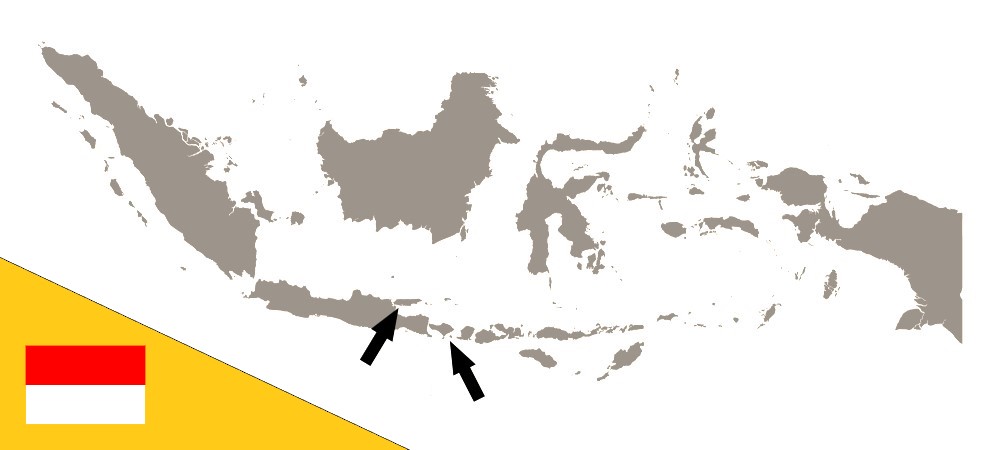A multimillion-pound project to create “hope spots” in Indonesia’s battle against plastic waste has been given the go-ahead by the UK’s Global Challenges Research Fund.
The ambitious three-and-a-half-year project will see a multi-disciplinary team research and model the flow of plastic waste across the country, and develop case study sites in the tourist hotspot of Bali and the fishing port of Pasuran to use as templates for tackling plastic pollution in other regions of Indonesia and across the world.
“We want to help create two areas that are good news stories for humanity and the environment. Two hope spots, where our methodologies, tools and approaches can be developed, tested and then replicated in other parts of the country, and indeed in other parts of the world” said project lead Prof Sue Jobling, a professor of Environmental Toxicology at Brunel University London, whose international team will include experts from the University of Plymouth and the University of Leeds, five Indonesian universities, the Indonesian Institute of Science and industry partners SYSTEMIQ.
“It will be great to be a part of a team who are dedicated to helping the Indonesian Government manage its burgeoning plastics problem.”

Case study sites will be created in Bali and Pasuran
The Indonesian government announced in 2017 that it hopes to reduce the amount of marine plastics it produces by 70% by 2025. Across the country, only 39% of waste is collected for proper disposal and it’s estimated that six million tonnes of waste a year is either burnt or dumped into the environment.
The use of plastic bags, straws and Styrofoam has already been prohibited in some areas, such as Bali, and the scientists will now look to model how effective such interventions can be.
“Plastic waste in the environment is a global problem but there are places where the problem is far worse and sadly, Indonesia is one of these,” said Jo Ruxton, producer of the award-winning documentary A Plastic Ocean and founder of the charity Plastic Oceans UK, who will be using their expertise in behaviour change to help address public attitudes to plastic waste.
“Lack of waste management infrastructure and the population’s dependence on single use plastic has seen Indonesia’s rivers literally choked with plastic waste. With over 17,000 islands, Indonesia’s coastline is then subjected to plastic waste washing up from the ocean.
“This pollution is made even worse by developed countries sending their waste plastic to be reprocessed, which often is just dumped and burnt.”
The team say that not only will they accurately model the ‘leakage’ of waste from the land into the oceans, and confirm their models with an extensive fieldwork programme, they will also gain a clearer understanding of what the economic, cultural and social reasons behind it are, and can start developing specific interventions that will help significantly reduce it.
They plan to create what they call ‘living laboratories’ at the case study sites where experts from different disciplines and sectors will be brought together with civil society to look at which solutions will work and what the relative costs and benefits of each might be.
The multinational group includes the Indonesian national and regional governments, the Indonesian and International Solid Waste Associations, the Indian Institute of Science, the Asian Institute of Technology, the Indonesian Plastics Association, Enviu Foundation, WRAP, and Giraffe Innovation Consultants.
“Change in the developing world is often driven by economics and not by harm,” said Prof Jobling, “even if it’s the harm to the environment and people that causes the economic issues in the first place. We’re going to incorporate the economic costs of the damage to the environment in our models, so we can model the economic improvement due to particular interventions.
“The Indonesian government’s Coordinating Ministry of Maritime Affairs has a very ambitious programme to deal with their plastic waste issue. It’s a country with huge political will, and we are pleased to say they’re very much our partner in this endeavour.”
The project is backed by £3.8m from the UK’s Natural Environment Research Council (NERC) as part of a wider £20m round of funding from the UKRI’s Global Challenges Research Fund (GCRF.)
Prof Sir Duncan Wingham, Executive Director of NERC, said: “Pollution caused by plastic waste is one of the world’s biggest environmental challenges, and UKRI is at the forefront of funding research to find solutions. These awards totalling £20 million are a vital step in helping world-leading researchers develop realistic and feasible solutions to reduce plastic pollution while enabling equitable, sustainable growth.
“Our investment in international development research aims to positively impact the lives of millions of people across the world and supports global efforts to achieve the UN’s Sustainable Development Goals.”
The Plymouth element of the project will be led by Professor of Ocean and Society Mel Austen, who leads GCRF’s Blue Communities programme and its work with coastal communities in Southeast Asia, and Prof Richard Thompson OBE, Head of the University’s International Marine Litter Research Unit.
Prof Austen said: “A great aspect of the PISCES project is that it enables us to apply ecosystem service research approaches and capability that, through Blue Communities, we have already helped to develop in Southeast Asia. That project has identified the impact of marine plastic, and the most effective ways to tackle its spread, as a current research gap. But it is an area where our expertise can have a positive effect and, given the global nature of this issue, it is crucial that nations come together to tackle it wherever possible.”
For further information on research at Brunel, please visit: brunel.ac.uk/research
Reported by:
Tim Pilgrim,
Media Relations
+44 (0)1895 268965
tim.pilgrim@brunel.ac.uk